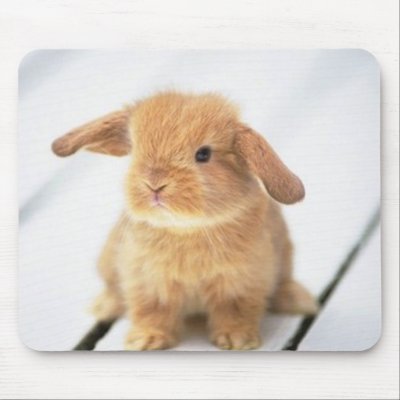Source(google.com.pk)
Cute Easter Pictures Biography
Easter (Old English: Ēostre) or the Pasch[1][2] or (among Eastern Orthodox) Pascha (Latin: Pascha; Greek: Πάσχα, Paskha; Aramaic: פַּסחא Pasḥa; from Hebrew: פֶּסַח Pesaḥ)[3] is a Christian festival and holiday celebrating the resurrection of Jesus Christ on the third day after his crucifixion at Calvary as described in the New Testament.[4][5] Easter is the culmination of the Passion of Christ, preceded by Lent, a forty-day period of fasting, prayer, and penance. The last week of Lent is called Holy Week, and it contains the days of the Easter Triduum, including Maundy Thursday (Holy Thursday in the Catholic Church), commemorating Maundy and the Last Supper,[6][7] as well as Good Friday, commemorating the crucifixion and death of Jesus.[8] Easter is followed by a fifty-day period called Eastertide or the Easter Season, ending with Pentecost Sunday. The festival is referred to in English by a variety of different names including Easter Day, Easter Sunday,[9] Resurrection Day and Resurrection Sunday.
Easter is a moveable feast, meaning it is not fixed in relation to the civil calendar. The First Council of Nicaea (325) established the date of Easter as the first Sunday after the full moon (the Paschal Full Moon) following the northern hemisphere's vernal equinox.[10] Ecclesiastically, the equinox is reckoned to be on 21 March (even though the equinox occurs, astronomically speaking, on 20 March in most years), and the "Full Moon" is not necessarily the astronomically correct date. The date of Easter therefore varies between 22 March and 25 April. Eastern Christianity bases its calculations on the Julian calendar whose 21 March corresponds, during the 21st century, to 3 April in the Gregorian calendar, in which the celebration of Easter therefore varies between 4 April and 8 May.
Easter is linked to the Jewish Passover by much of its symbolism, as well as by its position in the calendar. In many languages, the words for "Easter" and "Passover" are etymologically related or homonymous.[11] Easter customs vary across the Christian world, but attending sunrise services, exclaiming the Paschal greeting, clipping the church and decorating Easter eggs, a symbol of the empty tomb, are common motifs.[12][13][14] Additional customs include egg hunting, the Easter Bunny, and Easter parades, which are observed by both Christians and some non-ChristiansThe second-century equivalent of Easter and the Paschal Triduum was called by both Greek and Latin writers "Pascha (πάσχα)", a Greek transliteration of the Aramaic form of the Hebrew פֶּסַח, the Passover feast of Exodus 12.[21] Paul writes from Ephesus that "Christ our Pascha has been sacrificed for us," although the Ephesian Christians were not the first to hear that Exodus 12 spoke about the death of Jesus.[22] In most of the non-English speaking world, the feast today is known by the name Pascha and words derived from itThe modern English term Easter developed from the Old English word Ēastre or Ēostre (IPA: [ˈæːɑstre, ˈeːostre]), which itself developed prior to 899, originally referring to the name of the Anglo-Saxon goddess Ēostre.[23] Bede notes that the native Old English month Ēostur-monath (Old English "Ēostre-month") was equivalent to the month of April, yet that feasts held in the goddess's honor during Ēostur-monath had gone out of use by the time of his writing and had been replaced with the Christian custom of the "Paschal season". The feast was also historically referred to in English as "Pash" or "Pace",[24][25] from the Latin pascha (see below).
Using comparative linguistic evidence from continental Germanic sources, the 19th century scholar Jacob Grimm proposed the existence of a cognate form of Ēostre among the pre-Christian beliefs of the continental Germanic peoples, whose name he reconstructed as *Ostara. Since Grimm's time, linguists have identified the goddess as a Germanic form of the reconstructed Proto-Indo-European goddess of the dawn, *Hausos. Theories connecting Ēostre with records of Germanic Easter customs (including hares and eggs) have been proposed.[citation needed]
Modern German features the cognate term Ostern, but otherwise, Germanic languages generally use the non-native term pascha for the event.









Cute Easter Pictures Biography
Easter (Old English: Ēostre) or the Pasch[1][2] or (among Eastern Orthodox) Pascha (Latin: Pascha; Greek: Πάσχα, Paskha; Aramaic: פַּסחא Pasḥa; from Hebrew: פֶּסַח Pesaḥ)[3] is a Christian festival and holiday celebrating the resurrection of Jesus Christ on the third day after his crucifixion at Calvary as described in the New Testament.[4][5] Easter is the culmination of the Passion of Christ, preceded by Lent, a forty-day period of fasting, prayer, and penance. The last week of Lent is called Holy Week, and it contains the days of the Easter Triduum, including Maundy Thursday (Holy Thursday in the Catholic Church), commemorating Maundy and the Last Supper,[6][7] as well as Good Friday, commemorating the crucifixion and death of Jesus.[8] Easter is followed by a fifty-day period called Eastertide or the Easter Season, ending with Pentecost Sunday. The festival is referred to in English by a variety of different names including Easter Day, Easter Sunday,[9] Resurrection Day and Resurrection Sunday.
Easter is a moveable feast, meaning it is not fixed in relation to the civil calendar. The First Council of Nicaea (325) established the date of Easter as the first Sunday after the full moon (the Paschal Full Moon) following the northern hemisphere's vernal equinox.[10] Ecclesiastically, the equinox is reckoned to be on 21 March (even though the equinox occurs, astronomically speaking, on 20 March in most years), and the "Full Moon" is not necessarily the astronomically correct date. The date of Easter therefore varies between 22 March and 25 April. Eastern Christianity bases its calculations on the Julian calendar whose 21 March corresponds, during the 21st century, to 3 April in the Gregorian calendar, in which the celebration of Easter therefore varies between 4 April and 8 May.
Easter is linked to the Jewish Passover by much of its symbolism, as well as by its position in the calendar. In many languages, the words for "Easter" and "Passover" are etymologically related or homonymous.[11] Easter customs vary across the Christian world, but attending sunrise services, exclaiming the Paschal greeting, clipping the church and decorating Easter eggs, a symbol of the empty tomb, are common motifs.[12][13][14] Additional customs include egg hunting, the Easter Bunny, and Easter parades, which are observed by both Christians and some non-ChristiansThe second-century equivalent of Easter and the Paschal Triduum was called by both Greek and Latin writers "Pascha (πάσχα)", a Greek transliteration of the Aramaic form of the Hebrew פֶּסַח, the Passover feast of Exodus 12.[21] Paul writes from Ephesus that "Christ our Pascha has been sacrificed for us," although the Ephesian Christians were not the first to hear that Exodus 12 spoke about the death of Jesus.[22] In most of the non-English speaking world, the feast today is known by the name Pascha and words derived from itThe modern English term Easter developed from the Old English word Ēastre or Ēostre (IPA: [ˈæːɑstre, ˈeːostre]), which itself developed prior to 899, originally referring to the name of the Anglo-Saxon goddess Ēostre.[23] Bede notes that the native Old English month Ēostur-monath (Old English "Ēostre-month") was equivalent to the month of April, yet that feasts held in the goddess's honor during Ēostur-monath had gone out of use by the time of his writing and had been replaced with the Christian custom of the "Paschal season". The feast was also historically referred to in English as "Pash" or "Pace",[24][25] from the Latin pascha (see below).
Using comparative linguistic evidence from continental Germanic sources, the 19th century scholar Jacob Grimm proposed the existence of a cognate form of Ēostre among the pre-Christian beliefs of the continental Germanic peoples, whose name he reconstructed as *Ostara. Since Grimm's time, linguists have identified the goddess as a Germanic form of the reconstructed Proto-Indo-European goddess of the dawn, *Hausos. Theories connecting Ēostre with records of Germanic Easter customs (including hares and eggs) have been proposed.[citation needed]
Modern German features the cognate term Ostern, but otherwise, Germanic languages generally use the non-native term pascha for the event.
Cute Easter Pictures Biography

Cute Easter Pictures Biography

Cute Easter Pictures Biography

Cute Easter Pictures Biography

Cute Easter Pictures Biography

Cute Easter Pictures Biography

Cute Easter Pictures Biography

Cute Easter Pictures Biography

Cute Easter Pictures Biography

Cute Easter Pictures Biography


Cute Easter Pictures Biography
No comments:
Post a Comment